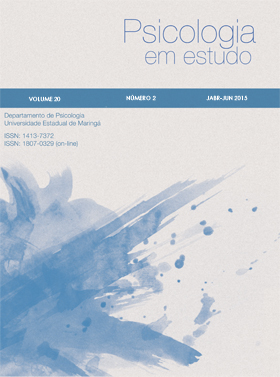MACHINE AND REALITY: CYBERNETICS, AUTOPOIESIS AND PRODUCTION OF SUBJECTIVITY IN FÉLIX GUATTARI
Abstract
This article aims to address the concept of machine and its consequent appropriation in the discussions on subjectivity. It is a theoretical study at the interface among Psychology, Philosophy, Physics and Biology. In this sense, it starts showing that in the modernity, the analogy to the machine was extended to the understanding of the universe as a precise and geometrically predictable functioning clock. And if, until the eighteenth century, life, body and cosmos were signified by the emerging science as a mechanical machine (of calculable motion in its predictability), in the nineteenth century they also came to be understood as a thermal machine, with its developments in the thermodynamics physics and cybernetics. In the late twentieth century, the concept of autopoietic machine gained relevance in the studies of life and cognition, based on the works of the biologists Francisco Varela and Humberto Maturana, which is appropriated by Félix Guattari for the development of his concept of the production of subjectivity and its problematizations around the subjectivation processes. Thus, the concept of machine has gone beyond the limitations of a mechanical and thermodynamics reading of reality, to an existential, procedural and inventive approach of the subjectivity.Downloads
As opiniões emitidas, são de exclusiva responsabilidade do(s) autor(es). Ao submeterem o manuscrito ao Conselho Editorial de Psicologia em Estudo, o(s) autor(es) assume(m) a responsabilidade de não ter previamente publicado ou submetido o mesmo manuscrito por outro periódico. Em caso de autoria múltipla, o manuscrito deve vir acompanhado de autorização assinada por todos os autores. Artigos aceitos para publicação passam a ser propriedade da revista, podendo ser remixados e reaproveitados conforme prevê a licença Creative Commons CC-BY.
The opinions expressed are the sole responsibility of the author (s). When submitting the manuscript to the Editorial Board of Study Psychology, the author (s) assumes responsibility for not having previously published or submitted the same manuscript by another journal. In case of multiple authorship, the manuscript must be accompanied by an authorization signed by all authors. Articles accepted for publication become the property of the journal, and can be remixed and reused as provided for in theby a license Creative Commons CC-BY.
















